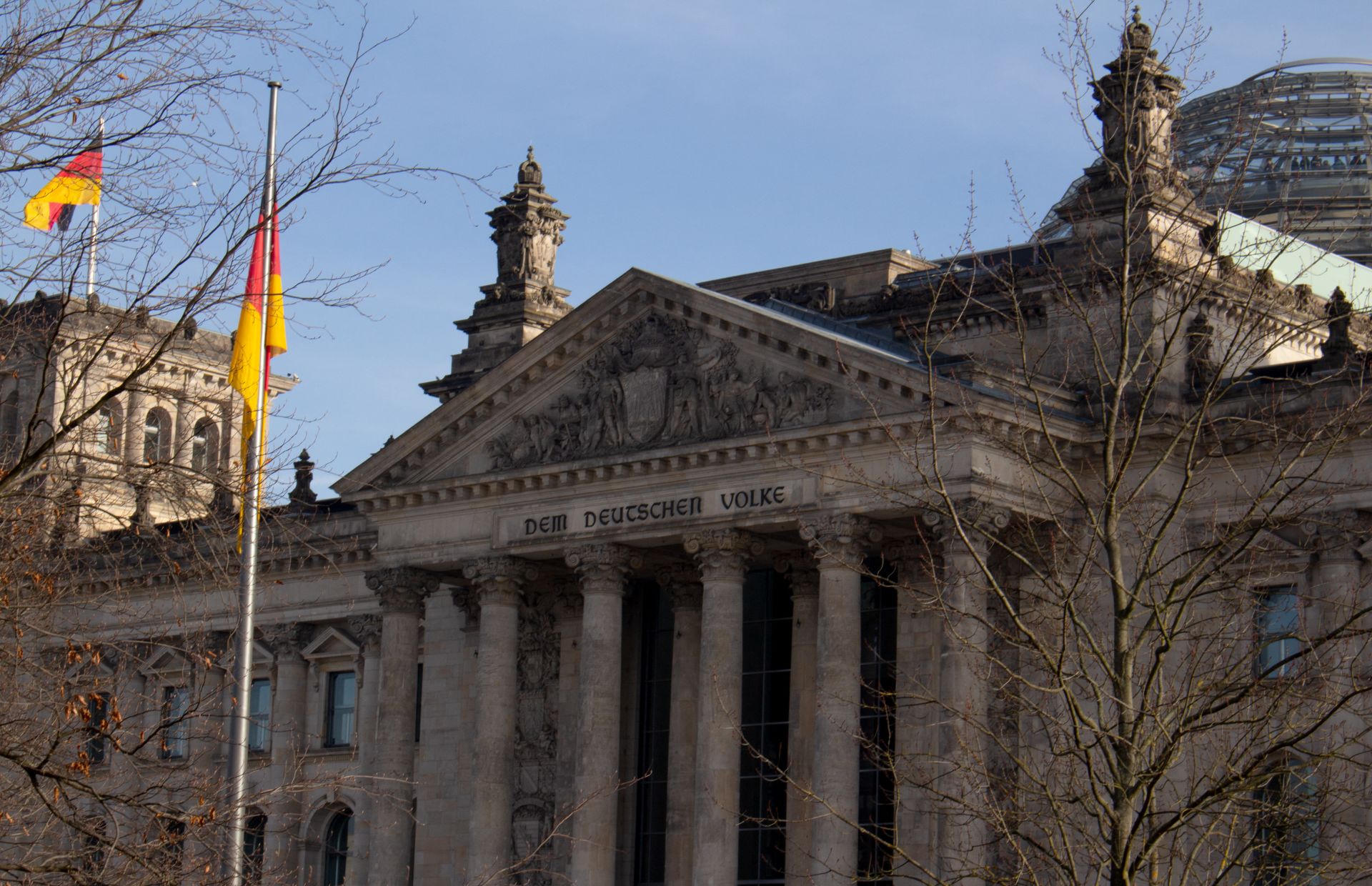- Home
- Middle East
- Germany's Crisis-Hit Economy Casts Shadow Over Election

The Reichstag building that houses the Bundestag, Germany's lower house of parliament, is pictured on January 22, 2025 in Berlin. Germany will hold an early parliamentary election on February 23, 2025 ©Vincent Kolbe / AFP
Auto industry jobs have long been the lifeblood of the German town of Luedenscheid but now, a trade union official says, the sector's woes have sparked fears it will turn into an "open-air industrial museum".
Insolvencies and layoffs have cast doubt on the town's future prosperity, echoing wider anxieties in Europe's biggest economy as it heads toward February 23 elections.
Politicians are scrambling for answers on how to turn around the export-led economy, long the envy of the world, which has shrunk for the past two years and faces strong headwinds from China and the United States.
In Luedenscheid, a town of 70,000 in Germany's Ruhr industrial heartland, the mood is glum after autoparts-maker Gerhardi filed for bankruptcy in November, threatening its 1,500 employees with redundancy.
Another supplier, Kostal, which makes electronic components, has already relocated hundreds of jobs to eastern Europe, and the future is uncertain for those who remain.
The IG Metall union's local representative Fabien Ferber said that the region's industry "has been promising prosperity to workers for generations" but that this is "collapsing like a house of cards".
He said last year about 1,000 jobs were lost among the region's car suppliers, which make everything from electronic widgets to plastic body parts.
Ferber said many workers fear the town could be "transformed into the world's largest open-air industrial museum".
'Old model not working'
Some have voiced similar concerns about the wider German economy, rattling off long lists of both cyclical and structural problems.
German industry has been battered by high energy prices sparked by Russia's war in Ukraine as well as rising Chinese competition, even as demand for German exports has fallen in the world's second-biggest economy.
Germany's flagship auto industry has been hit hard as its world-famous brands have been slower than Chinese newcomers in the electric vehicle (EV) race.
Industrial titan Volkswagen announced plans in December to cut 35,000 jobs in the coming years after a months-long industrial dispute.
Critics also blame years of underinvestment in German infrastructure for trains that no longer run on time, patchy internet connectivity and a dearth of EV charging stations.
An ageing society has caused a shortage of skilled labour and threatens a growing pension burden for the country of 82 million.
There are bright spots – global corporate giants including Allianz, Deutsche Telekom, SAP and Siemens helped push the blue-chip DAX stock index to an all-time high this week.
But deeper fears grip a country that has been dominant in 20th century sectors such as combustion engine cars and machinery but has few big players among the world's electronics, internet and AI giants.
Trump jitters
Angry discord on how to fix the economy and a tight budget helped break up Chancellor Olaf Scholz's three-party coalition, paving the way for the snap elections.
As the campaign race heats up, candidates are offering rival visions on rebuilding the "Made in Germany" brand.
Looming over the race is the return of US President Donald Trump, who has voiced ire about the German trade surplus and threatened tariffs.
German officials fear his protectionist policies could theoretically slash Germany's GDP by one percent and destroy 300,000 jobs.
Back in Luedenscheid, Mayor Sebastian Wagemeyer of Scholz's Social Democrats said the malaise had boosted local support for the far-right Alternative for Germany, which is polling at around 20 percent nationally.
"This region is a barometer of what's going on in the country," Wagemeyer said. "If it falters, it has repercussions for the whole of Germany."
By Lea Pernelle and Sam Reeves, AFP
Read more



Comments